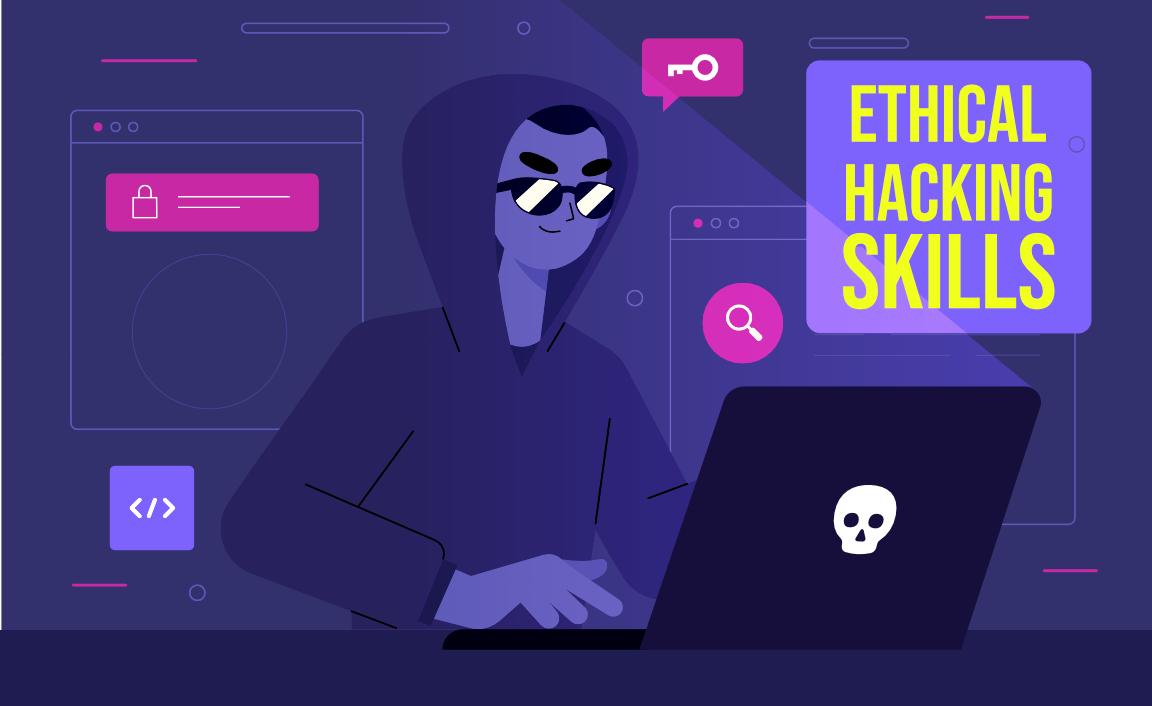
Ethical hacking is a crucial field in cybersecurity, helping organizations identify vulnerabilities before malicious hackers can exploit them. To excel in ethical hacking, professionals must develop a diverse skill set encompassing technical expertise, problem-solving abilities, and ethical responsibility. This article explores the top 10 essential skills every ethical hacker should master to succeed in the field.
1. Networking Fundamentals
A strong understanding of networking is vital for ethical hackers to identify vulnerabilities in network configurations. Key concepts include:
-
TCP/IP protocols
-
Subnetting and IP addressing
-
DNS and DHCP
-
Firewalls and VPNs
-
Packet analysis with Wireshark
2. Proficiency in Operating Systems (Linux & Windows)
Ethical hackers must be comfortable working with multiple operating systems, especially:
-
Linux: Kali Linux, Ubuntu, and Parrot OS are commonly used in penetration testing.
-
Windows: Understanding Windows security features, Active Directory, and PowerShell scripting.
3. Programming and Scripting Skills
Coding knowledge enables ethical hackers to automate tasks and develop exploits. Useful languages include:
-
Python – Widely used for scripting and automation.
-
Bash – Essential for Linux command-line operations.
-
C and C++ – Useful for understanding malware and reverse engineering.
-
JavaScript & SQL – Important for web application security testing.
4. Knowledge of Penetration Testing Tools
Ethical hackers should be proficient in using various penetration testing tools, including:
-
Metasploit Framework
-
Nmap (Network scanning)
-
Burp Suite (Web security testing)
-
John the Ripper (Password cracking)
-
Aircrack-ng (Wi-Fi security testing)
5. Understanding of Cryptography
Cryptography is essential for protecting data. Ethical hackers should understand:
-
Encryption algorithms (AES, RSA, SHA)
-
Hashing techniques
-
Digital signatures and certificates
-
Secure key management
Note: If you want to learn Cyber Security in Kochi. Then you can choose Skillmerge to learn Cyber Security course in Kochi. For any queries visit the official site
6. Web Application Security
Web applications are common targets for hackers. Ethical hackers must be skilled in identifying vulnerabilities like:
-
SQL Injection
-
Cross-Site Scripting (XSS)
-
Cross-Site Request Forgery (CSRF)
-
Broken authentication and session management
-
Security misconfigurations
7. Social Engineering Techniques
Human error remains a significant security risk. Ethical hackers should master social engineering tactics, including:
-
Phishing attacks
-
Pretexting and impersonation
-
Psychological manipulation techniques
-
Awareness training to counteract social engineering threats
8. Reverse Engineering and Malware Analysis
Understanding how malware works is essential for ethical hackers. Key skills include:
-
Decompiling and analyzing malware
-
Using tools like IDA Pro and Ghidra
-
Debugging techniques
-
Identifying ransomware and rootkits
9. Cloud Security Knowledge
With businesses migrating to the cloud, ethical hackers must understand cloud security principles, such as:
-
Cloud service models (IaaS, PaaS, SaaS)
-
Identity and Access Management (IAM)
-
Cloud vulnerabilities and misconfigurations
-
Security best practices for AWS, Azure, and Google Cloud
10. Legal and Ethical Understanding
Ethical hackers must operate within legal boundaries and adhere to ethical guidelines. Important aspects include:
-
Understanding cybersecurity laws (e.g., CFAA, GDPR, HIPAA)
-
Responsible disclosure policies
-
Ethical hacking frameworks (e.g., EC-Council Code of Ethics)
-
Maintaining professionalism and integrity
Conclusion
To become a successful ethical hacker, mastering these 10 skills is essential. By developing a deep understanding of networking, programming, penetration testing, cryptography, and ethical principles, cybersecurity professionals can help organizations stay ahead of cyber threats. Continuous learning and staying updated with the latest security trends are key to excelling in this ever-evolving field.




Leave a Reply